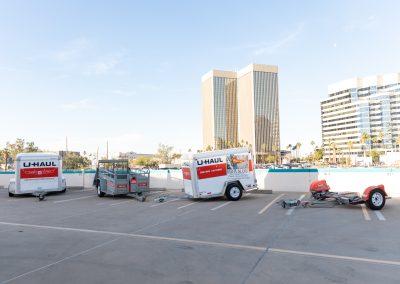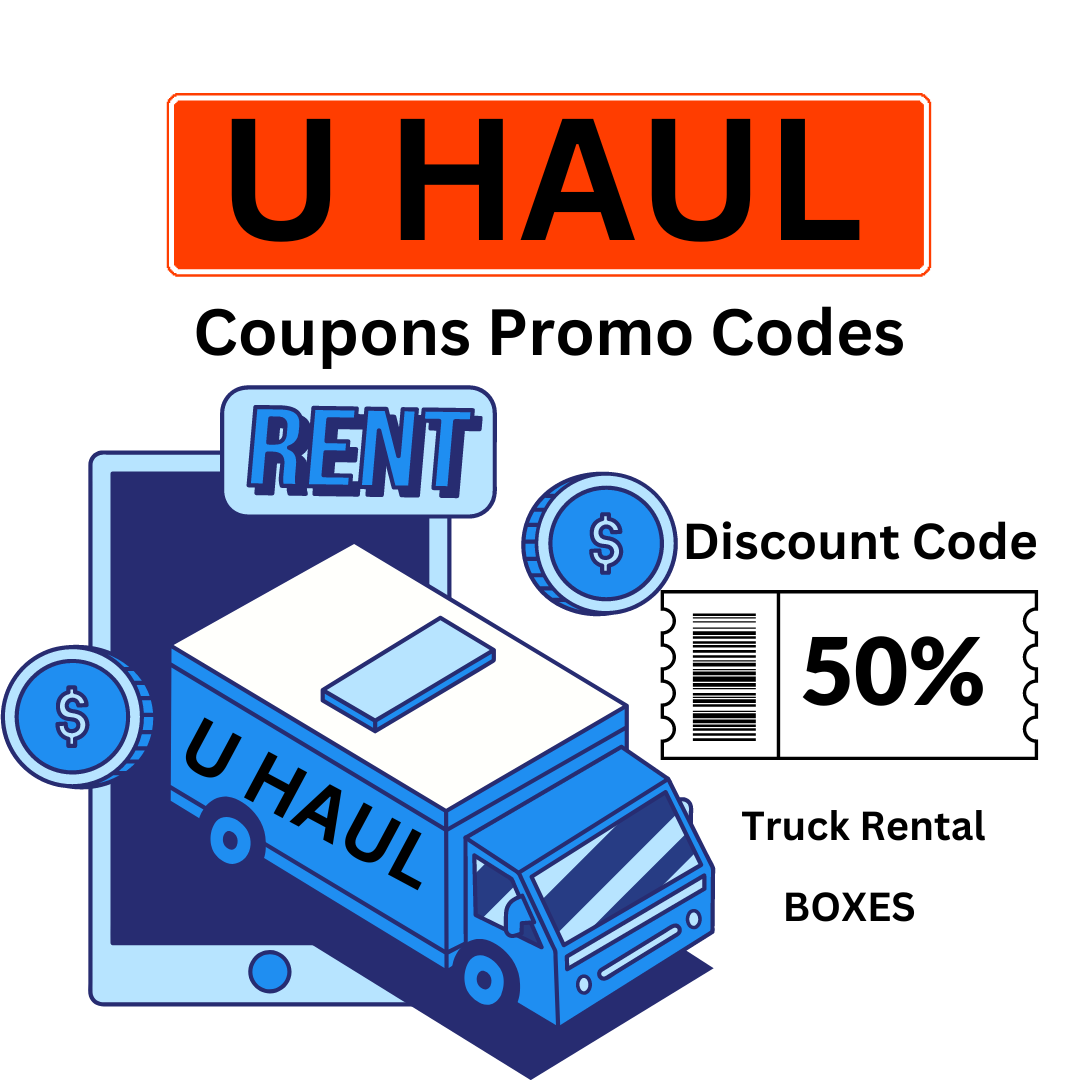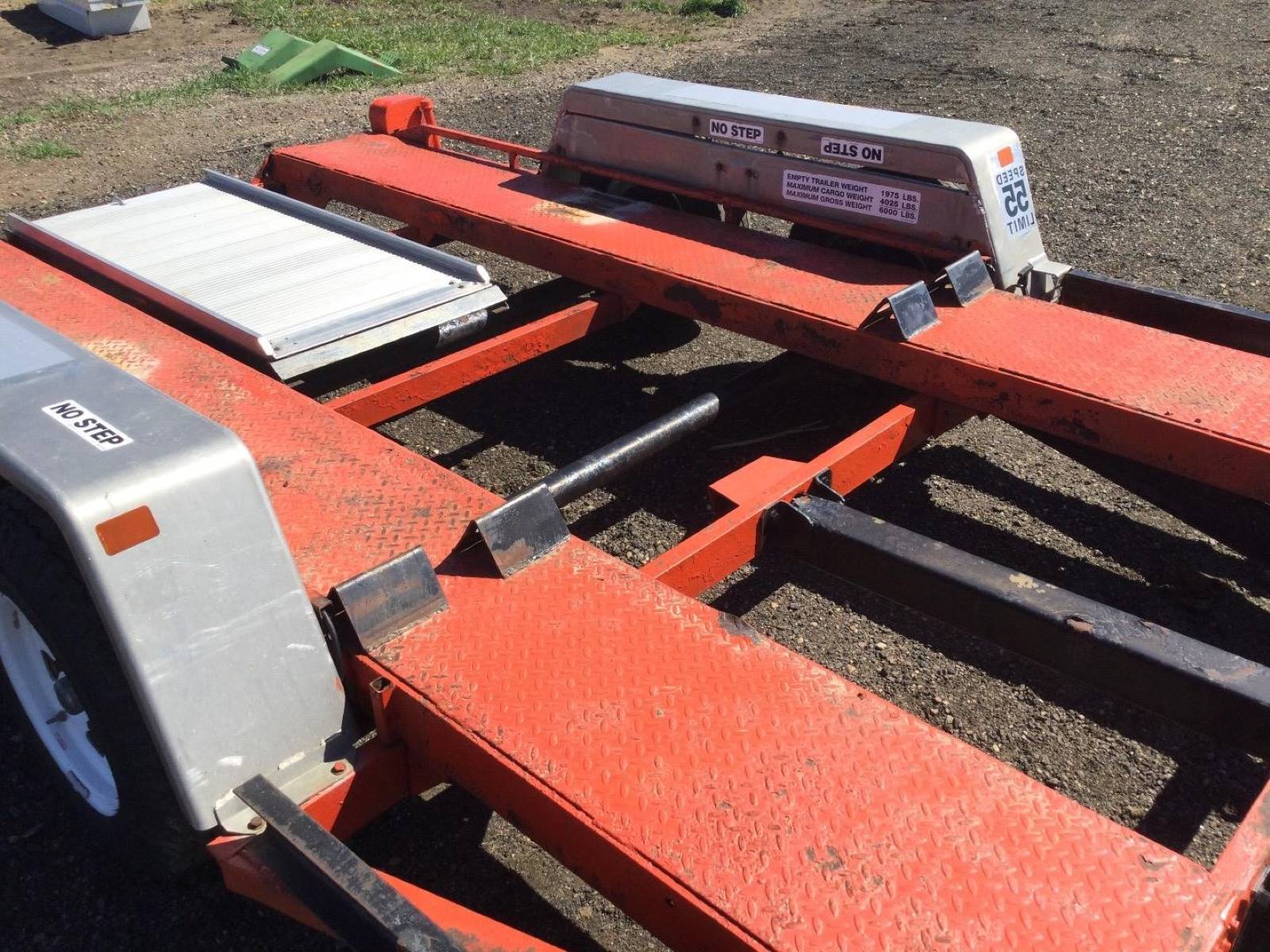Types Of U-Haul Trailers: Your Comprehensive Guide to Moving and Hauling Solutions
Types Of U-Haul Trailers: Your Comprehensive Guide to Moving and Hauling Solutions cars.truckstrend.com
Moving, renovating, or simply needing to transport large items can often feel like a monumental task. While professional movers offer convenience, they come at a significant cost. For those who prefer a more hands-on approach, or need a flexible solution for hauling, U-Haul trailers stand out as an indispensable resource. Offering a diverse fleet designed to meet a wide array of needs, U-Haul trailers empower individuals to take control of their logistics, saving money and providing unparalleled flexibility.
But with so many options, how do you choose the right one? Understanding the different types of U-Haul trailers, their capacities, and their ideal applications is crucial for a successful and stress-free experience. This comprehensive guide will delve into the various categories of U-Haul trailers, helping you make an informed decision for your next move or hauling project.
Types Of U-Haul Trailers: Your Comprehensive Guide to Moving and Hauling Solutions
The Versatility of U-Haul Trailers – Why Choose Them?
U-Haul has long been synonymous with DIY moving, and their extensive range of trailers is a core reason for this reputation. Opting for a U-Haul trailer offers several distinct advantages:
- Cost-Effectiveness: Renting a trailer is significantly cheaper than hiring a full-service moving company, especially for local moves or when you only need to transport specific items.
- Flexibility and Control: You dictate the schedule, the route, and the loading/unloading process. This autonomy is invaluable for those with unique timelines or specific handling requirements.
- Widespread Availability: With thousands of locations across North America, picking up and dropping off a U-Haul trailer is remarkably convenient, even for one-way trips.
- Right-Sized Solutions: From compact cargo trailers to robust car haulers, there’s a trailer designed for almost any hauling challenge, preventing you from paying for space you don’t need or struggling with insufficient capacity.
- Accessibility: Most U-Haul trailers can be towed by a standard pickup truck or SUV, and often even by larger cars, provided the tow vehicle meets the specific requirements.

Enclosed Cargo Trailers – Protecting Your Belongings
When the weather is unpredictable, or your belongings need maximum protection from dust, debris, and theft, U-Haul’s enclosed cargo trailers are the ideal choice. These trailers feature a fully enclosed, box-like design, ensuring your items remain secure and shielded throughout their journey.
- Description: These are standard box trailers, typically with a ramp door or swing doors at the rear for easy loading. They offer complete protection from the elements and a secure environment for your valuables.
- Common Sizes:
- 4×8: Perfect for small apartments, dorm rooms, or hauling a few pieces of furniture. It offers 200 cubic feet of loading space.
- 5×8: A popular choice for one-bedroom apartments or larger studio moves, providing 256 cubic feet of space.
- 5×10: Suitable for 1-2 bedroom apartments, offering 400 cubic feet of secure storage.
- 6×12: The largest enclosed cargo trailer, ideal for 2-3 bedroom homes or substantial loads. It provides 570 cubic feet of space and often features a low deck for easier loading.

- Best Use Cases: Moving household furniture, appliances, boxes of personal items, electronics, fragile goods, or anything that needs to be protected from rain, wind, or prying eyes.
- Benefits: Superior security, complete weather protection, cleanliness, and peace of mind.
- Considerations: Ensure you calculate the volume and weight of your items accurately. While protected, items still need to be properly packed and secured inside to prevent shifting during transit. The taller profile can also be more susceptible to crosswinds than open trailers.

Open Utility Trailers – For Bulky and Odd-Sized Items
Not everything fits neatly into a box, and some items are better off in the open air. U-Haul’s utility trailers are designed for just such occasions, offering an open-top design that accommodates tall, wide, or unusually shaped cargo.
- Description: These trailers feature an open bed, typically with short sides and sometimes a loading ramp at the rear. They are perfect for items that don’t require protection from the elements or are too large for enclosed trailers.
- Common Sizes:
- 4×7: A compact option for smaller jobs like hauling yard waste or a few pieces of lumber.
- 5×8: Versatile for home improvement projects, light landscaping, or moving ATVs/motorcycles. Many feature a ramp.
- 5×10: A popular choice for larger landscaping jobs, construction debris, or transporting multiple large outdoor items. Often equipped with a ramp.
- 6×12: The largest utility trailer, suitable for heavy-duty hauling, large equipment, or multiple powersports vehicles. It often comes with a heavy-duty ramp.
- Best Use Cases: Transporting landscaping materials (mulch, gravel), construction debris, lumber, large appliances (refrigerators, washers), motorcycles, ATVs, lawnmowers, or furniture that’s too tall for an enclosed trailer.
- Benefits: Easy loading and unloading (especially with ramps), ability to transport oversized items, and a generally lighter trailer weight compared to enclosed options.
- Considerations: Items are exposed to the elements, so consider weather conditions. Proper tie-downs and tarps are essential to secure your load and protect it from road grime or rain. Overloading can be a significant safety hazard.
Car Trailers – Transporting Vehicles Safely
Moving a vehicle, whether it’s a car, truck, or SUV, requires specialized equipment. U-Haul offers two primary types of car trailers, each designed for different vehicle types and towing needs.
-
Tow Dollies:
- Description: A two-wheel trailer that lifts the front (or sometimes rear) wheels of the towed vehicle off the ground, allowing the other two wheels to remain on the road.
- Best Use Cases: Ideal for front-wheel drive vehicles, or rear-wheel drive vehicles if the drive shaft is disconnected. Good for shorter distances or when a full car carrier isn’t necessary.
- Benefits: Lighter, more affordable, and generally easier to maneuver than full car carriers.
- Considerations: Not suitable for all vehicles (especially AWD/4WD without proper preparation). The towed vehicle’s steering wheel must be secured, and its transmission may need to be put in neutral or disconnected.
-
Auto Transports (Car Carriers):
- Description: A four-wheel trailer designed to carry an entire vehicle completely off the ground.
- Best Use Cases: The safest and most secure option for transporting any type of vehicle, especially for long distances, classic cars, non-running vehicles, or AWD/4WD vehicles where disconnecting the drivetrain is not feasible.
- Benefits: Protects the towed vehicle’s tires, suspension, and drivetrain from wear and tear. Provides maximum security.
- Considerations: Heavier and more expensive than a tow dolly, requiring a more robust tow vehicle with a higher towing capacity. Can be more challenging to maneuver and park.
-
Important Considerations for Vehicle Transport: Always verify your tow vehicle’s towing capacity against the combined weight of the car trailer and the vehicle you intend to transport. Proper loading (weight distribution) and securing with all straps are paramount for safety.
Choosing the Right U-Haul Trailer – A Step-by-Step Guide
Selecting the perfect U-Haul trailer is about matching your needs with the right equipment. Follow these steps to make an informed decision:
-
Assess Your Load:
- What are you moving? List all items.
- How much? Estimate the total weight.
- Dimensions? Measure the largest items to ensure they fit through the trailer door and within its height/width.
- Fragility/Protection Needs? Do items need to be shielded from weather or theft? This dictates enclosed vs. open.
-
Consider Weight: Every U-Haul trailer has a maximum weight capacity. Add the weight of your items to the trailer’s empty weight to get the Gross Trailer Weight (GTW). Ensure this is well within your tow vehicle’s capacity.
-
Evaluate Your Tow Vehicle:
- Hitch Class: Does your vehicle have a proper hitch receiver? U-Haul requires specific hitch classes for certain trailers.
- Towing Capacity: Check your vehicle’s owner’s manual for its maximum towing capacity. Never exceed this.
- Transmission: Automatic transmissions often require a transmission cooler for heavy towing.
- Trailer Light Connection: Your vehicle needs a working 4-pin or 7-pin connector for trailer lights.
-
Distance and Conditions: For long-distance moves, an enclosed trailer offers better protection. For short, local hauls of outdoor items, a utility trailer might suffice. Consider potential weather conditions.
-
Budget: While trailers are generally affordable, larger trailers and car carriers will cost more per day. Factor in rental duration.
-
Safety First: U-Haul provides a towing guide and ensures their equipment is well-maintained. However, the responsibility for safe towing rests with you. Understand weight distribution, ensure proper hitch connection, verify lights are working, and secure all items inside the trailer.
U-Haul Trailer Types, Sizes, and Estimated Daily Prices
Below is a table summarizing the common U-Haul trailer types, their typical sizes, capacities, key features, and estimated daily price ranges. Please note that prices can vary significantly based on location, demand, duration of rental, and specific promotions. Always check current pricing directly with U-Haul.
| Trailer Type | Common Sizes (LxW) | Approximate Capacity (Volume/Weight) | Key Features | Estimated Daily Price Range (USD) |
|---|---|---|---|---|
| Enclosed Cargo | 4×8 ft | 200 cu. ft. / 1,600 lbs | Weather protection, security, ramp door | $14.95 – $29.95 |
| 5×8 ft | 256 cu. ft. / 1,800 lbs | Enclosed, secure, ramp door | $19.95 – $34.95 | |
| 5×10 ft | 400 cu. ft. / 2,000 lbs | Fully enclosed, robust, ramp door | $24.95 – $39.95 | |
| 6×12 ft | 570 cu. ft. / 2,500 lbs | Largest enclosed, low deck, ramp door | $29.95 – $49.95 | |
| Open Utility | 4×7 ft | 1,600 lbs | Open top, light duty, easy to load | $14.95 – $24.95 |
| 5×8 ft | 1,600 lbs | Open top, often with ramp, versatile | $19.95 – $29.95 | |
| 5×10 ft | 1,800 lbs | Open top, often with ramp, for larger items | $24.95 – $34.95 | |
| 6×12 ft | 2,400 lbs | Largest open, heavy-duty ramp, for bulky goods | $29.95 – $39.95 | |
| Car Trailers | Tow Dolly | Up to 3,450 lbs | Lifts 2 wheels, lighter, easier maneuver | $39.95 – $64.95 |
| Auto Transport | Up to 5,290 lbs | Lifts all 4 wheels, most secure, heavy duty | $59.95 – $89.95 |
Note: Daily prices are estimates for local rentals and can vary significantly based on location, demand, duration, and whether it’s a one-way rental.
Practical Advice & Actionable Insights
- Book Early: Especially during peak moving seasons (spring/summer, end of month), book your trailer well in advance to ensure availability.
- Understand Your Tow Vehicle: Always confirm your vehicle’s towing capacity and ensure it has the correct hitch and wiring before renting.
- Load Smart: Distribute weight evenly, with slightly more weight towards the front of the trailer (about 60% of the load’s weight over the front half of the trailer’s bed). Secure all items tightly to prevent shifting.
- Pre-Trip Inspection: Before driving, check the hitch connection, safety chains, lights (turn signals, brakes, running lights), and tire pressure on both your vehicle and the trailer.
- Drive Safely: Allow extra stopping distance, take wider turns, and reduce your speed, especially on highways or in adverse weather.
Frequently Asked Questions (FAQ)
Q: Do I need a special license to tow a U-Haul trailer?
A: In most states and provinces, a standard driver’s license is sufficient for towing U-Haul trailers, as their weights typically fall below the threshold requiring a commercial driver’s license. However, always check your local Department of Motor Vehicles (DMV) regulations.
Q: Can I rent a U-Haul trailer without a hitch on my vehicle?
A: No, you cannot. Your vehicle must have a properly installed hitch receiver with the correct class rating and a functional wiring harness for trailer lights. U-Haul locations often offer hitch installation services.
Q: What is the maximum speed limit when towing a U-Haul trailer?
A: U-Haul recommends a maximum speed of 55 mph when towing their trailers. Additionally, many states have lower speed limits for vehicles towing trailers. Always obey posted speed limits and adjust for road conditions.
Q: Do U-Haul trailers have brakes?
A: Most smaller U-Haul cargo and utility trailers do not have independent braking systems. The braking is handled by the tow vehicle. Larger trailers, particularly auto transports, may feature surge brakes, which activate automatically as the tow vehicle slows down.
Q: What insurance do I need when renting a U-Haul trailer?
A: Your personal auto insurance policy might cover some aspects of towing, but it’s crucial to confirm. U-Haul offers supplementary coverage options like Safemove® and Safetow® that provide damage waivers and cargo protection, which are highly recommended for peace of mind.
Q: Can I pick up and drop off a U-Haul trailer at different locations?
A: Yes, U-Haul offers convenient one-way trailer rentals, allowing you to pick up a trailer at one location and drop it off at another U-Haul center, which is ideal for cross-country moves.
Conclusion
U-Haul trailers offer an incredibly flexible, cost-effective, and empowering solution for anyone needing to move belongings or transport vehicles. By understanding the distinct types of trailers available – from secure enclosed cargo units to versatile open utility trailers and specialized car carriers – you can confidently select the perfect equipment for your specific needs. Remember to prioritize safety by matching the trailer to your tow vehicle’s capabilities, loading properly, and driving cautiously. With the right U-Haul trailer, your next moving or hauling project can be a smooth, efficient, and successful endeavor.






